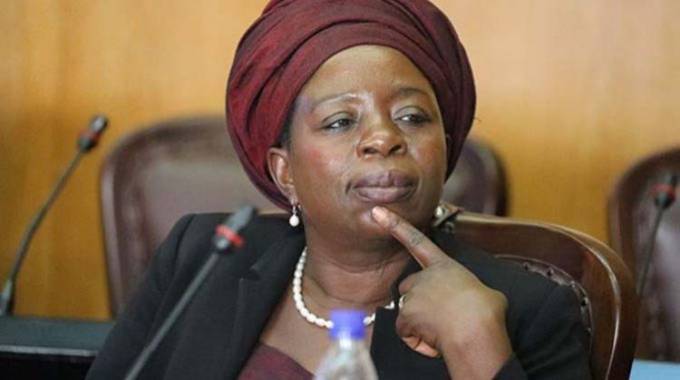
The Sunday Mail

Wallace Ruzvidzo
Sunday Mail Correspondent
Zimbabwe has put in place concrete measures to ensure sufficient fertiliser for the 2022-2023 summer cropping season, which bodes well for the Government’s production targets, especially following latest projections of normal to above-normal rains in the region.
There have been concerns fertiliser shortages could affect the season owing to supply disruptions caused by the Russia-Ukraine conflict. The Government, however, has mobilised resources for local producers to plug the gap.
Industry and Commerce Minister Dr Sekai Nzenza told The Sunday Mail that the Government had pulled out all the stops to ensure adequate fertiliser supplies.
“Early prepayments and placement of orders or viable payment arrangements are very crucial in ensuring key raw materials are secured in time for the 2022-2023 summer season,” she said.
Foreign currency, Minister Nzenza added, will be provided to producers to import raw materials for fertiliser production. “Local fertiliser producers in Zimbabwe have production capacity of about 1,7 million tonnes per annum of NPK basal and top-dressing fertiliser.
“In relation to NPK basal fertiliser, the requirement is 400 000 tonnes and for top-dressing, it’s 380 000 tonnes to ensure the availability of fertiliser for the forthcoming season. The aforementioned figures are a clear indicator that the nation is prepared for the forthcoming season.”
She said the fertiliser value chain was critical in growing the economy and achieving Vision 2030. The Government is in the second year of implementing the five-year fertiliser import-substitution strategy.
“Pursuant to this strategy, focus is on capacitating manufacturers in order to ensure increased production. Some members of the Zimbabwe Fertiliser Manufacturers Association (ZFMA) have invested in fertiliser granulation equipment, and this move is very likely to witness growth in affordable local phosphates in both granulated NPK basal fertilisers and NPK blends.
“The plant is expected to be running in the fourth quarter of 2022 with a capacity of 120 000 tonnes per annum. A similar plant with the capacity of 300 000 tonnes per annum is expected to be functional in the first quarter of 2023 and will guarantee full supply of local NPK basal raw materials,” she said.
In a presentation at the just-ended Zimbabwe Agricultural Show, ZFMA chairperson Mr James Chigwende said fertiliser manufacturers are able to meet national demand. “We have capacity to produce more than we require, especially on the basal fertiliser component, and we can meet the national demand if we are equipped with the right tools,” he said.
“The refurbishment of Sable Chemicals will enable it to produce 240 000 tonnes of top-dressing fertiliser against the current stocks of 200 000 tonnes, which is an important step in the right direction as we try to avoid challenges that we faced in the previous season.”
Zimbabwe Commercial Farmers Union president Dr Shadreck Makombe applauded the Government for putting in place plans to ensure fertiliser availability. He, however, implored suppliers to reduce prices where possible.
“Given the promises made by Government, we are anticipating that there will be no shortages this year. However, prices are a bit exorbitant, so we encourage fertiliser suppliers to reduce their prices so that farmers are able to go about planting with no problems,” he said.
Dr Makombe said preparations for the summer cropping season are at an advanced stage. “Generally, everything is in place even with regards to Government’s Pfumvudza programme. Preparations are going on well, with most farmers already receiving inputs.”
In its recent state of preparedness report for the upcoming cropping season, the Ministry of Lands, Agriculture, Fisheries, Water and Rural Development had indicated that possible fertiliser shortages would pose a challenge for farmers. “Fertiliser shortages occur every year, indicating the need for more concerted effort to consolidate localisation plans for fertiliser production. Demand by programme is as follows: Presidential input programme 160 000 metric tonnes (MT), Command Agriculture 240 000MT and for private purchases is 180 000MT,” said the report.



